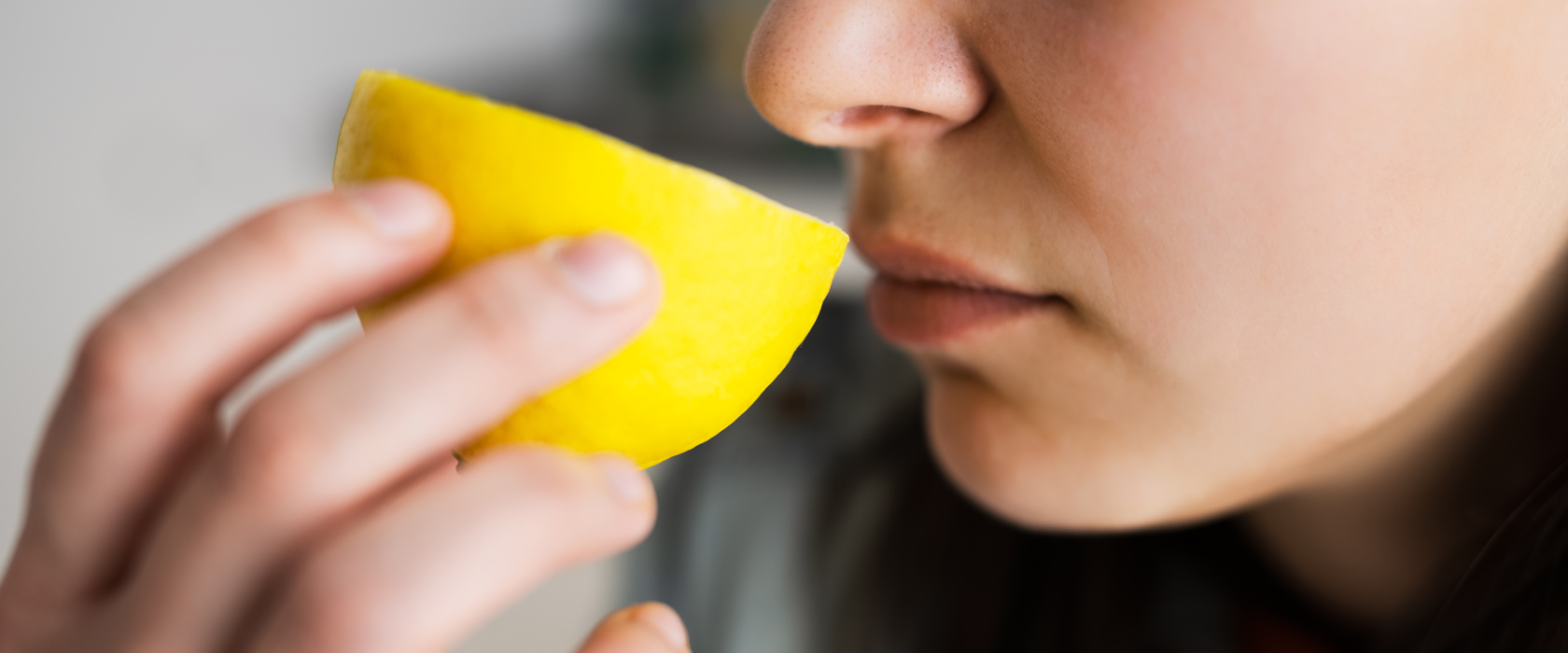What to Know About Losing Sense of Smell and Taste From COVID-19
A recent study found that many patients hadn’t regained their ability to smell five months later.

Losing your sense of smell has become recognized as one of the telltale symptoms of COVID-19. According to a recent study by the American Academy of Neurology (AAN), this symptom can last for up to five months in some patients.
The study followed 813 healthcare workers who tested positive for COVID-19. Out of those participants, 580 people lost their sense of smell when they first became sick with the virus. Five months later, about half — 51% — of those people were still experiencing a loss of smell and taste.

Dr. David Goldberg
“It really confirmed what we know, which is that [lost sense of smell and taste] can persist even after most of the other symptoms are gone, and it can last for weeks or months,” says Dr. David Goldberg, an internist and infectious disease specialist at NewYork-Presbyterian Medical Group Westchester and assistant professor of medicine at Columbia University Vagelos College of Physicians and Surgeons.
Loss of smell is one of many ongoing symptoms of what is being called long-COVID, in which symptoms like brain fog, fatigue, and shortness of breath persist many months after patients recover and test negative for COVID-19.
Health Matters spoke with Dr. Goldberg to understand the study’s findings and what researchers know about what causes the loss of smell, how long it lasts, and what can be done to help regain the sense again.
Why is this lost sense of smell occurring as a result of COVID-19?
No one knows for sure at this point. The question is: Is it direct damage to the olfactory nerve, which transmits information relating to smell to the brain, or is it due to damage to the part of the brain that controls the sense of smell? Either way, it is nerve damage.
Does this symptom occur with other coronaviruses?
No. That’s the strange part about this. This is a unique feature of COVID-19. To my knowledge, losing one’s sense of smell is not associated with any other infectious diseases.
How is the loss of smell linked to a loss of taste?
We tend to think of the sense of taste as residing in the mouth, chiefly the tongue. But in fact, the sense of taste also depends a great deal upon the sense of smell. If you lose your sense of smell, you also lose the sense of taste. When you lose your sense of taste and smell, it can have a huge impact on a person’s quality of life. It’s very hard if you can’t enjoy your food, and it could lead to people losing weight and energy as a result.
How severe is this loss of smell and taste?
It varies greatly. Some people say it’s very mild and it’s better in a week or so. Other people lose it completely — they just have no sense of smell, and it can take months until it gets better. Unfortunately, there’s no predicting who’s going to get it, what the course will be, or how long the recovery will be.
Will people regain their sense of smell?
As the study indicated, it can go on for months, but the good news is that it seems that most people recover all or almost all of it. This disease is new, so nobody knows what it’s like five years down the line or even two years down the line. But I can tell you that most people eventually seem to get most of it back.
Why does it take so long?
The most important thing to know about nerve damage is that the recovery is typically slow. Once the nerve has been damaged, the healing process takes a long time. For instance, if somebody has Bell’s palsy, a nerve condition in which half of the face becomes paralyzed, the recovery can take months. So this is fairly typical of what we see with nerve damage or any kind of neurologic damage. It’s a slow, somewhat unpredictable recovery.
As the study indicated, it can go on for months, but the good news is that it seems that most people recover all or almost all of it.
Dr. David Goldberg
Is there anything that can be done to regain a sense of smell?
There’s not much to do to speed the recovery. We don’t know of any treatments for this. All you can do is wait and watch. The good news is that in most cases people do get better.
How can people cope?
If someone has lost their sense of smell and taste from having COVID-19, I recommend people experiment with different foods. Some people may find that they can enjoy certain foods or beverages that have a stronger odor. Maybe they can’t enjoy the foods they liked before, but there may be other foods that they did not enjoy that taste better now. So it’s mostly a matter of trying out different foods and flavors.
Also, remember to have patience with yourself. Every person is different and recovers at different speeds. Most people will eventually regain their sense of smell and taste; it’s just a matter of time.
David M. Goldberg, M.D., is an internist and infectious disease specialist at NewYork-Presbyterian Medical Group Westchester and an assistant professor of medicine at Columbia University Vagelos College of Physicians and Surgeons. Dr. Goldberg is board-certified in Internal Medicine and Infectious Diseases and has a special interest in travel medicine, Lyme disease, HIV, and community-acquired infections.
